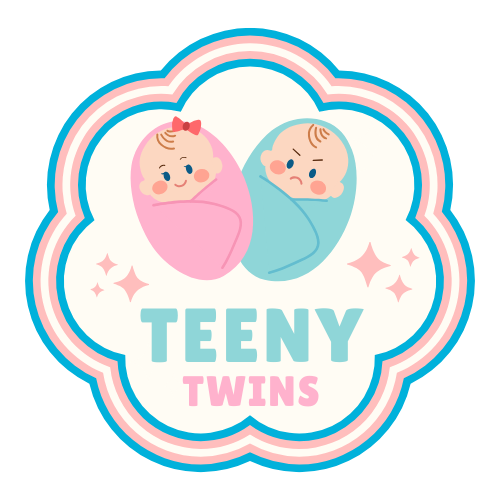Expecting identical MCDA twins? Learn what makes them unique, potential risks, and how to ensure a healthy, happy pregnancy.

Table of Contents
A Simpler Guide to Monochorionic Diamniotic Twins for Expectant Mums:
Congrats on your upcoming twins! Even though there is undoubtedly twice as much delight and excitement associated with a twin pregnancy, it’s crucial to comprehend the various kinds of twin pregnancies, particularly those involving monochorionic diamniotic (MCDA) twins.
What are MCDA twins?
Twins that are MCDAs, or “identical twins who share a placenta,” are created when a single fertilized egg (zygote) divides into two or more in the weeks following conception. They have two distinct inner sacs (amnia) and placentas, but they share a single outer sac (chorion). Because of this, they are not monochorionic-monoamniotic twins, which are less common and carry a higher chance of miscarriage. Instead, they are monozygotic, or identical twins.
You are carrying identical twins who have their own comfortable apartments (amniotic sacs) and share a unique “apartment” called the placenta. Their status as Monochorionic Diamniotic (MCDA) twins results from this.
Consider the following scenario: Two brothers who live in the same building but have separate flats. They have privacy in their rooms but share common areas (placenta) such as the halls.
Salient features of MCDA twins:
Prevalence: Twenty percent of all twins and about 70% of identical twins are MCDA.
Genes: Unaffected by familial background.
Appearance: May have distinct traits or be remarkably similar.
Prenatal care: Because of the possibility of problems, more regular monitoring is necessary.
Delivery: Usually sooner than with a single pregnancy, occasionally necessitating a cesarean procedure.
Possible complexities:
Although MCDA pregnancies are usually risk-free, sharing a placenta carries certain hazards, including:
Twin-to-twin transfusion syndrome (TTTS): An imbalance in blood flow that may cause problems for one or both of the twins.
Selective intrauterine growth restriction (sIUGR): Growth is impeded when one twin does not receive adequate nourishment.
Cord entanglement: When umbilical cords entwine, it may affect the flow of oxygen.
For these hazards to be managed, early diagnosis and vigilant observation are essential. Over your pregnancy, your doctor will probably advise certain tests and ultrasounds.
Important details to be aware of:
More frequent check-ups: To make sure both babies are content and healthy, closer observation with your doctor is necessary because they share a space.
Potential problems: Resource sharing may occasionally result in issues like Twin-to-Twin Transfusion Syndrome (TTTS) or one kid developing more slowly than the other (sIUGR). Fear not—doctors are trained to handle these!
Early delivery: For their safety, your priceless pair may arrive a little sooner than singletons, frequently through a C-section.

Frequently Asked Questions:
Q: Do my babies look the same?
A: Likely! They have a lot of genes in common because they were once just one egg. However, just like siblings, each is distinct!
Q: Are there any dangers?
A: Sharing a placenta can lead to certain possible issues. But keep in mind that their influence is much lessened by early discovery and continuous monitoring with your physician.
Q: What can I anticipate?
A: More screenings, more ultrasounds, and maybe an earlier birth. But fear not—your physician will help you at every turn!
Q: How can I get ready?
A: Assemble information from trustworthy sources, discuss any worries with your physician, and create a solid support network. Recall that you are not by yourself!
Q: Will I require more regular examinations?
Indeed, more regular testing, including ultrasounds, is necessary to monitor MCDA pregnancies in order to identify any problems and guarantee the health of both twins.
Q: Will a C-section be my only option?
Not every time. The choice is influenced by a number of variables, including gestational age, fetal positioning, and any problems. Your physician will talk to you about the safest way to birth your child(ren).
Q: How may an MCDA pregnancy stress me out?
It’s important to be open with your doctor, participate in twin parent support groups, and ask for assistance from friends and family. Never be afraid to seek assistance when you need it.
Recall:
Most pregnancies go well with the right care, but MCDA pregnancies need special attention. You and your twins can have a healthy and happy experience if you are prepared and collaborate well with your healthcare team.



